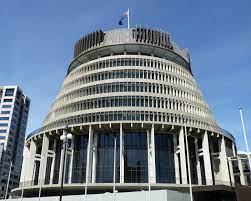Case Mounting for Inquiry into NZ Govt’s Management of Covid Pandemic

Point of Order
Only now are some of the true costs for New Zealanders of the Covid pandemic and the government’s imposition of lockdowns in those far-off days of 2020 and 2021 becoming apparent.
They are being felt daily in every household, and not just through the surge in the cost of living. They will be felt for years to come through servicing the big rise in the national debt incurred during those lockdowns
Not so obvious, but just as onerous. will be the impact of Covid on major construction projects. Only this week Dr Sean Sweeney, CEO of City Rail Link project, wrote in the NZ Herald of the direct impact of full lockdowns on the project’s sites and the ongoing impact of more than 280 days in which Auckland was either at lockdown level 3 with borders closed, or level 2 with restrictions to site operations.
Furthermore, there had been the impact of closed borders on site resources. The global supply chain was also severely disrupted.
Dr Sweeeny says these effects delayed the project and combined to lift building cost inflation to levels unheard since the high inflation years of the 1970s and 1980s.
CRL has been working with its design construction partner , the Link Alliance, to agree on what the actual time and cost impacts to the project are.
In April 2021,CRL advised its project sponsors, the Crown and Auckland Council, it could not give a revised project time and cost status. Since January 2020 it has been working with the Link Alliance to quantify all Covid costs and impact since June 2020.
It doesn’t expect this to be finished until the end of this year.
Just what will be the final cost of completing the CRL, (which will undoubtedly transform Auckland’s transport system) is anybody’s guess at the moment. The only thing certain is that it will be a shock for Auckland ratepayers.
The project back in 2019 had a cost estimate of $4.4bn. Anyone reading between the lines of Dr Sweeney’s article might think he was preparing Auckland ratepayers, the CRL’s customers, and taxpayers generally for the worst.
This reinforces the call for an inquiry which came from former politician Richard Prebble this week..
Prebble has his own slant on the need for the inquiry. He says it should not be to apportion blame—that serves no useful purpose — but says “we need an inquiry to be better prepared for the next pandemic”.
He argues the government needs to abandon the New Zealand model, the traffic lights, compulsory isolation and the mandates.
“Adopt the Swedish model. Trust the people to use their common sense”.
Prebble notes that internationally for the first two years of the pandemic, New Zealand’s response was praised.
He went on to observe that commentators often frame the discussion as New Zealand v Sweden.
“Sweden’s refusal to lockdown or issue mandates, relying instead on their citizens’ common sense, was scorned. Swedes pictured in April 2020 socialising in Stockholm while New Zealand was in lockdown. Sweden responded saying that in three years their infection and death rates from Covid will be no higher than countries that have locked down, quarantined and issued mandates. Sweden said they will not have deprived people of their liberties, damaged their children’s education or harmed their economy.
“Unlike New Zealand, Sweden has held an independent Corona Commission into its response. The Commission was critical of initial inadequate protection to those in care homes that resulted in 90 per cent of all Covid deaths.
“The Commission found that the Swedish Covid death rate was lower than European countries that locked down. The Commission determined the no lockdown strategy was correct, saying the state should only limit the liberty of citizens when absolutely necessary.”
The commission praised the decision to keep schools open, noting Swedish pupils have not had their education disrupted.
In contrast, international researchers have become increasingly critical of New Zealand’s response, Prebble says,
He cites epidemiologist and health economist at Stanford University School of Medicine, Professor Jay Bhattacharya:
“New Zealand’s Zero Covid strategy was immoral, incoherent and a grand failure.”
The Stanford professor says New Zealand has experienced more Covid cases per capita throughout the pandemic than the US and
“… there are the enormous economic, psychological and additional health costs of lockdown that the population will pay out for over the coming year.”
Prebble reckons the cost of Labour’s failed zero Covid policy to citizens, the economy, health and to education has been huge.
The only country still following the New Zealand model of lockdowns, quarantines and mandates is the police state of communist China.
[…]
The Most Revolutionary Act
- Stuart Jeanne Bramhall's profile
- 11 followers



